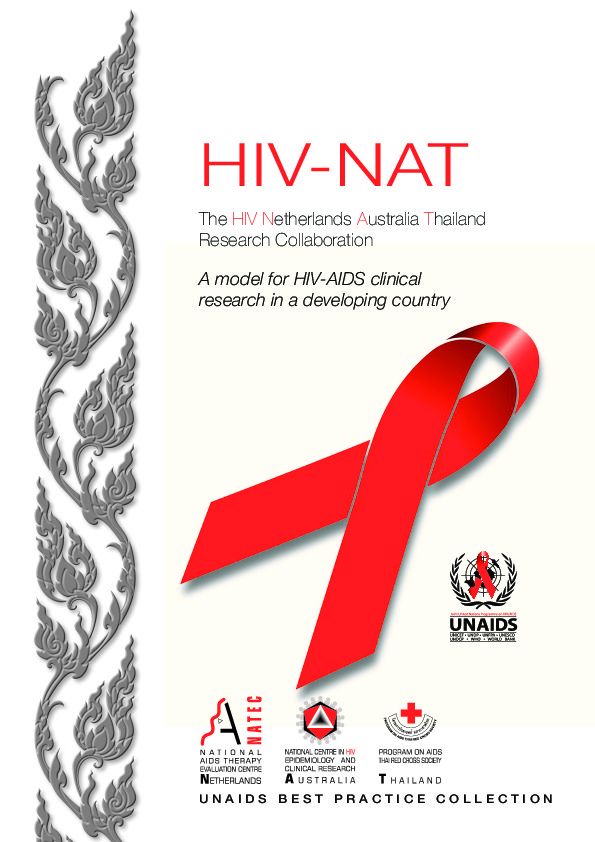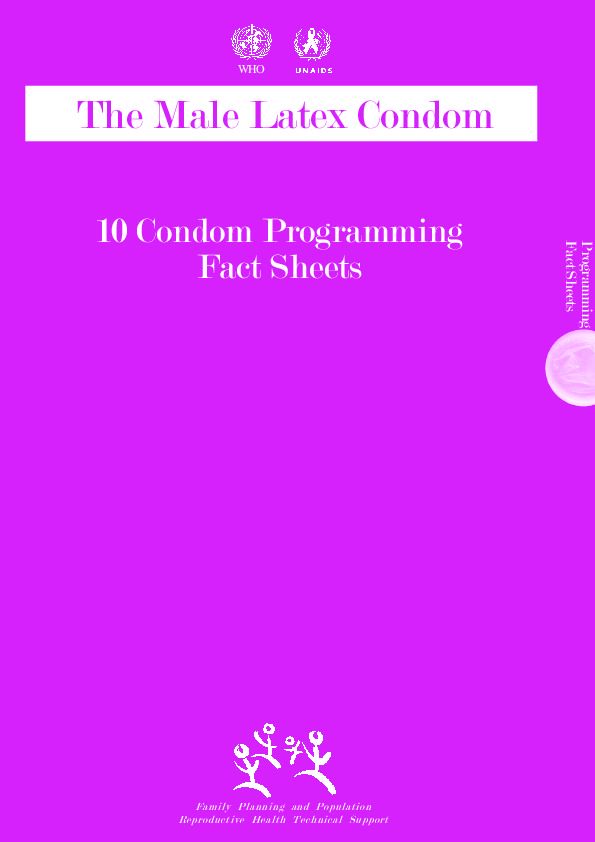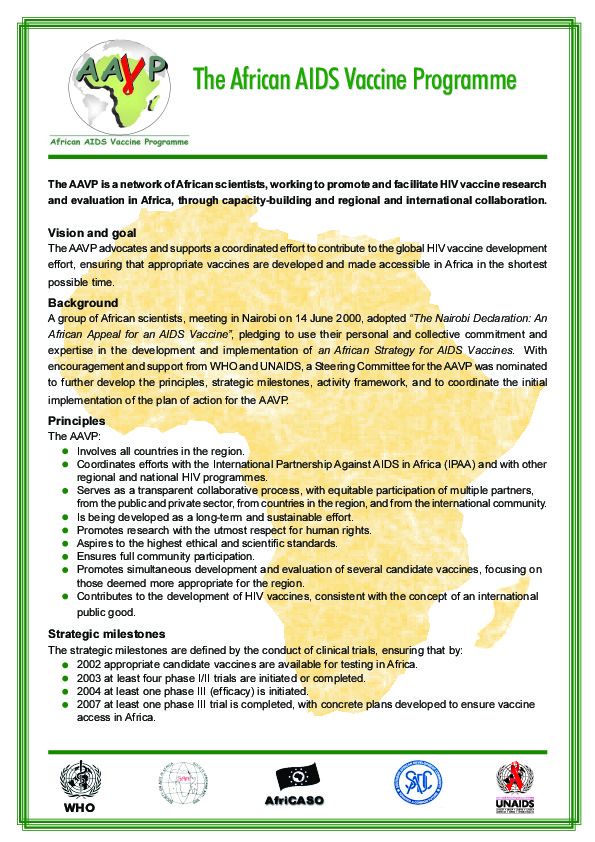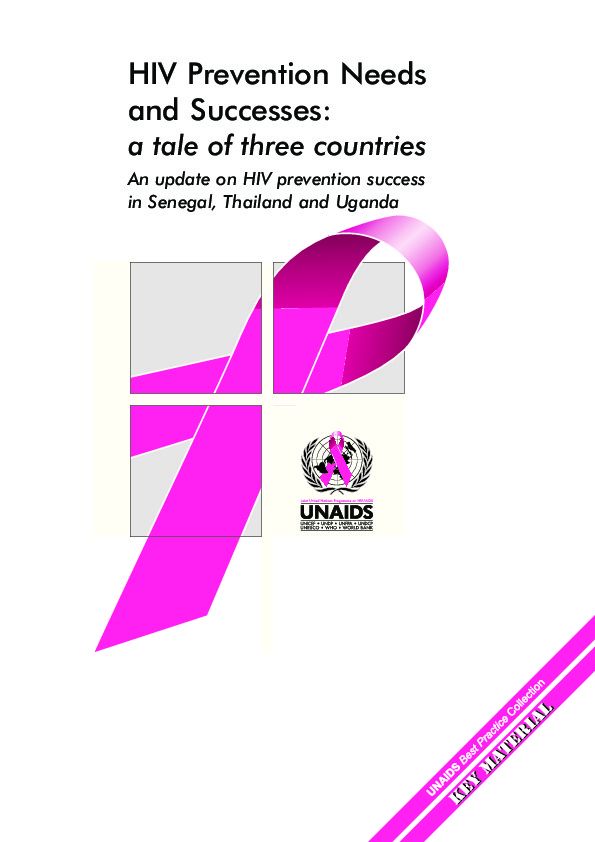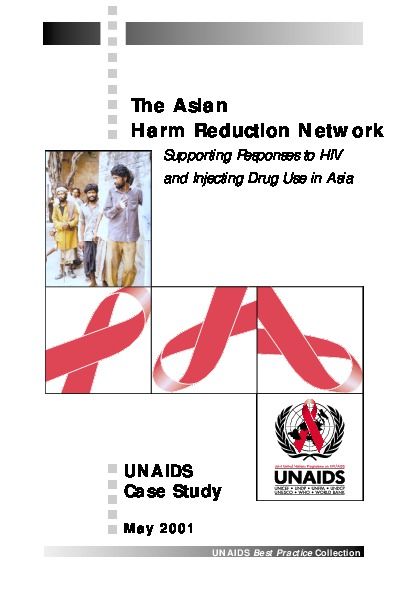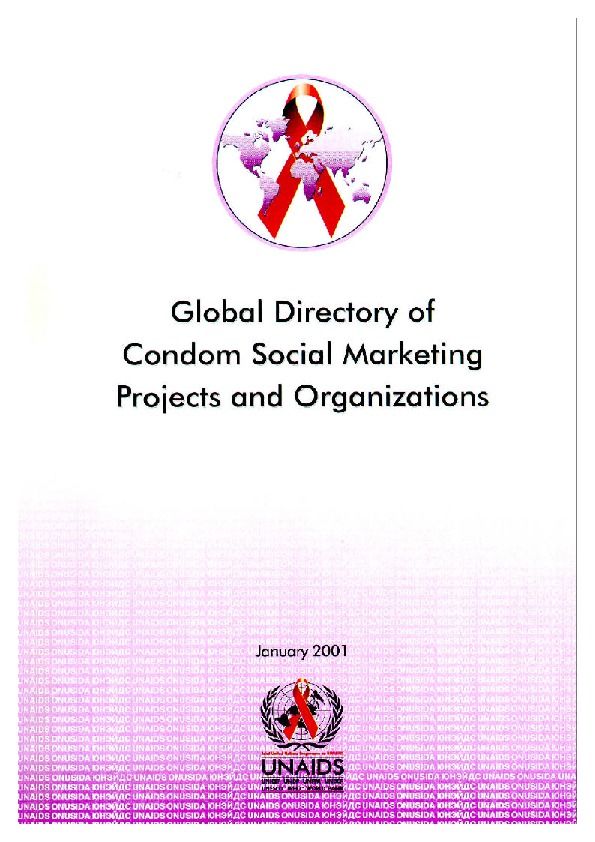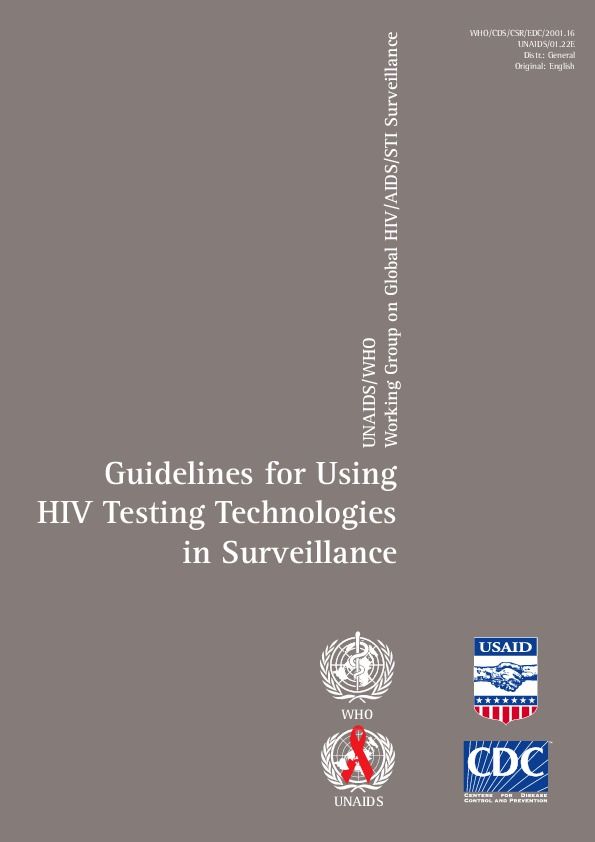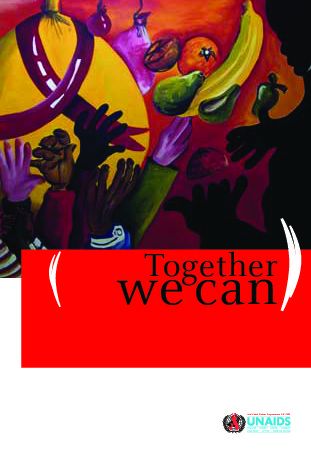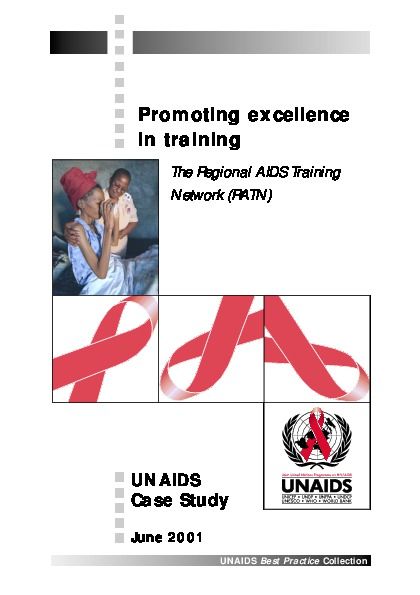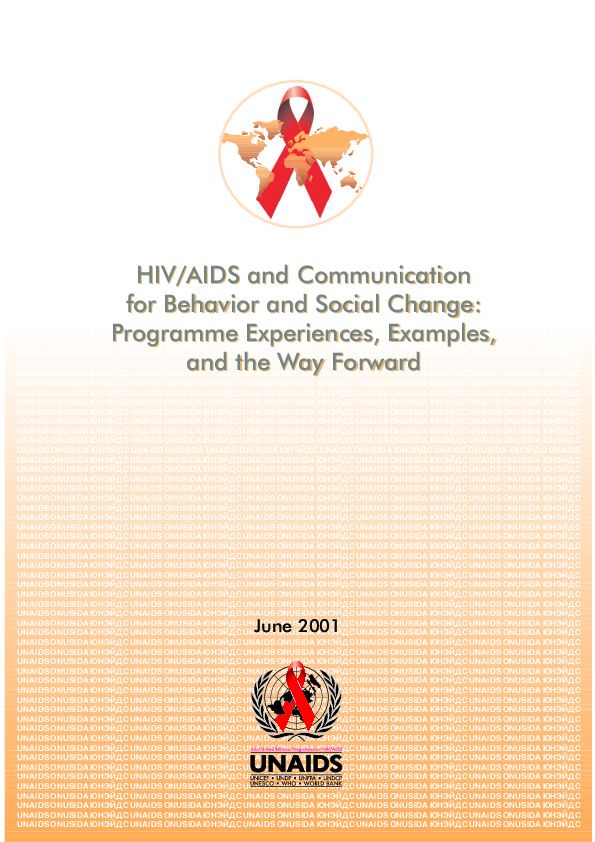Documents
The African AIDS Vaccine Programme
09 May 2001
In June 2000, a group of African scientists met in Nairobi and pledged to use their personal and collective expertise to develop/implement an African strategy for AIDS vaccines, thus forming the African AIDS Vaccine Programme (AAVP). This two-page document discusses the AAVP’s principles (i.e. it promotes research with the utmost respect for human rights, aspires to the highest ethical and scientific standards, and ensures full community participation), strategic milestones, and activity framework.
Documents
HIV prevention needs and successes : a tale of three countries
10 May 2001
Worldwide there is a growing body of knowledge about successful interventions to reduce the spread of HIV/AIDS. Success is certainly not limited to industrialized countries. In developing countries, prevention activities aimed at changing behaviours and associated social norms can and do work, not only on a large scale but also at the national level. To demonstrate this, data and experiences from three countries—Senegal, Thailand and Uganda—with differing cultures and different levels of the epidemic, are presented in this booklet.
Documents
The Asian Harm Reduction Network: Supporting Responses to HIV and Injecting Drug Use in Asia
11 May 2001
This case study demonstrates that the Asian Harm Reduction Network has the potential to be again a decisive catalyst for action, to provide the skills-building capacities for largescale interventions, and to assist all those in the communities to do what needs to be done. Looking back at our common history, I am convinced that the Intercountry Team together with its cosponsors and partners, and the Asian Harm Reduction Network with its many competent
members, can contribute significantly. In cooperation we can reduce the incidence of HIV infection and other drug-related harm among drug users in Asia and provide care and support to those who need it.
Documents
Guidelines for using HIV testing technologies in surveillance : selection, evaluation and implementation
14 June 2001
As the HIV/AIDS epidemic imposes an ever-larger burden on the world, second generation HIV surveillance becomes more critical in understanding the trends of the epidemic and making sound decisions on how best to respond to it. In the context of second generation HIV surveillance, these laboratory guidelines suggest methods for selecting, evaluating and implementing HIV testing technologies and strategies based on a country's laboratory infrastructure and surveillance needs. The guidelines provide recommendations for specimen selection, collection, storage, and testing, and for the selection and evaluation of appropriate HIV testing strategies and technologies to meet surveillance objectives. Because accurate results are important in biological surveillance of HIV, quality assurance measures are addressed. The guidelines also include a glossary of terms used in the document. These technical guidelines are written for HIV surveillance coordinators and other health professionals involved in HIV testing for surveillance purposes in developing countries. They are part of a series of operational guidelines for second generation HIV surveillance systems.
Documents
Together we can : Leadership in a world of AIDS
21 June 2001
“Wherever it takes hold, the AIDs epidemic feeds on existing economic and social problems. Ultimately, the test of our leadership will be how decisively we address the enduring poverty, inequality and inadequate infrastructures that are the enablers of this terrible disease. It is only by doing so that we can empower individuals, communities and countries to play their full part as leaders in the fight against HIV/AIDS. “
Documents
HIV/AIDS and communication for behavioural and social change : programme experiences, examples, and the way forward. International workshop, Geneva, Switzerland, July 25 to 27, 2000
27 June 2001
This publication summarizes a three-day workshop on “Communication for Behaviour and Social Change: Programme Experiences, Examples and the Way Forward”, held in Geneva, Switzerland, 25-27 July 2000. It documents the workshop’s objectives (such as mapping out strategies for implementing communication programmes for behavioural and social changes) and its activities. The report also examines the role of communication in the implementation of the various UNAIDS priority areas, including young people’s right to know about HIV/AIDS; the UNAIDS communication framework, which calls for refocusing communication interventions on the basis of five contextual domains (government policy, socioeconomic status, culture, gender relations and spirituality); the steps towards making the communication framework operational; and workshop recommendations.

